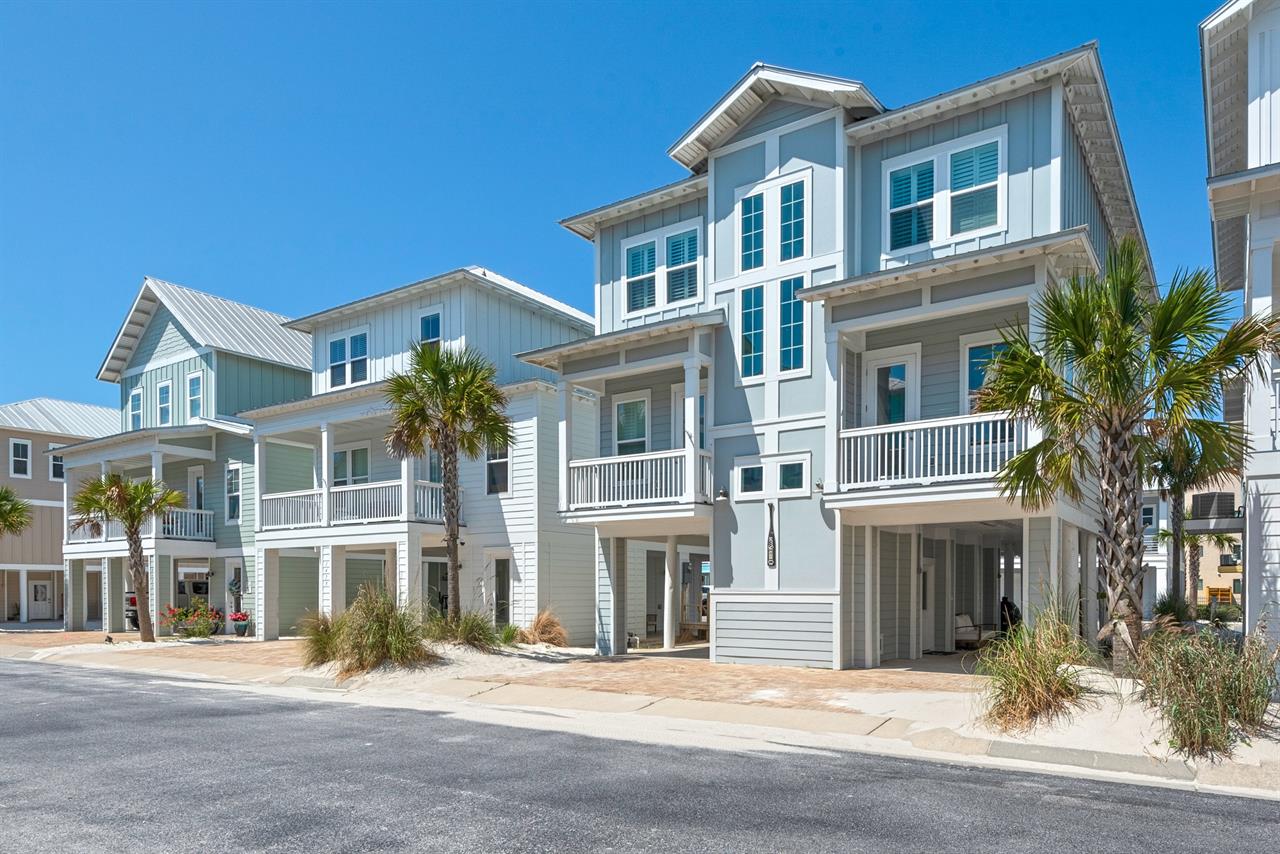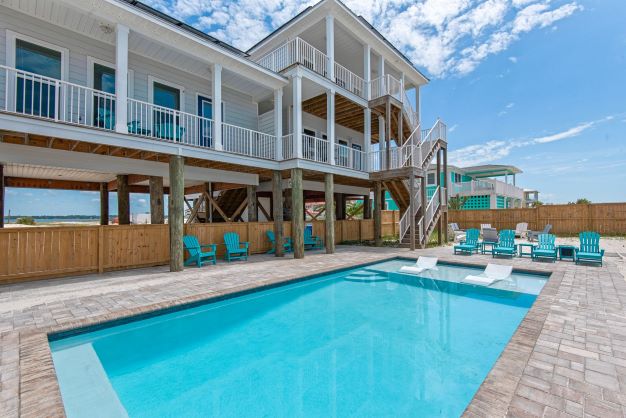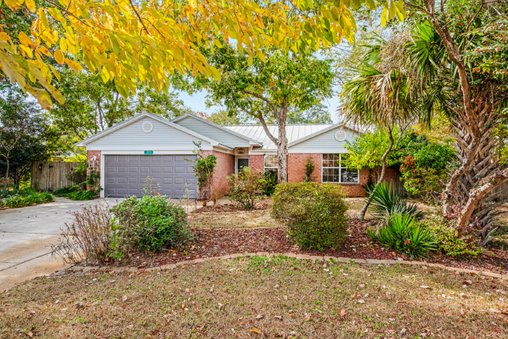 If you have a second home that is sitting empty, this home could generate passive income by turning it into a short-term or long-term rental property. Depending on your usage of that home and income goals, you?ll want to research and find the ideal rental situation for your property. Keep reading to determine whether short-term or long-term rentals are suitable for you.
If you have a second home that is sitting empty, this home could generate passive income by turning it into a short-term or long-term rental property. Depending on your usage of that home and income goals, you?ll want to research and find the ideal rental situation for your property. Keep reading to determine whether short-term or long-term rentals are suitable for you.
What is a Short-Term Rental?
Short-term rentals, commonly referred to as ?vacation rentals?, are defined as furnished residential properties that are typically rented out for a period of 30 days or shorter. Sometimes, longer stays are permitted depending on local jurisdiction and owner preference. Popular listing sites for short-term rentals are Airbnb, Vrbo, and Booking.com. Owners of short-term rentals can choose to either self-manage their rental or outsource property management to a third-party vacation rental company.

Benefits of Short-Term/Vacation Rentals
Potential for High Profits
One of the many reasons that vacation rentals have become popular is due to their high earning potential. Unlike long-term leases, short-term nightly rental rates can fluctuate depending on seasonality. For example, rates for a beach house tend to be higher during the summer months but lower during the winter months. You can charge higher rates based on seasonality, holidays, and events.
Personal Usage of Rental
Another benefit of short-term or vacation rentals is the option for owners to have access to the property for personal use. Since short-term rentals typically have higher turnover, there are gaps between guest stays where owners may reserve their own property for last-minute getaways or planned celebrations.
Tax Breaks and Deductions
On the financial side of short-term rental ownership, property management, maintenance, and cleaning fees can add up. On top of that, owners face administrative costs for services like marketing and commissions. Luckily, some owners can write off some of these expenses and reduce tax responsibility.
Outsourcing Property Management
One of the best options for vacation rental owners is to outsource property management to a third-party property management company. At Pensacola Beach Properties, property management functions such as cleaning, maintenance, marketing, guest services, and more are managed by our team so you wouldn?t have to lift a finger as the owner!
Challenges of Short-Term Rentals
Changes in Income
While short-term vacation rentals have high earning potential, bookings may also fluctuate. Economic conditions, slower seasons, and weather may impact your bookings. Adjusting rates to compensate for potential losses due to slow seasons may be challenging.
Seasonality isn?t a doom sentence, however. Some amenities can do the trick and cause your property to stand out. For example, offering guest use to a hot tub during the colder months or investing in home upgrades may entice guests to book your rental regardless of the seasons.
Additional Maintenance
One drawback with a higher turnover of guests could be the additional cleaning and maintenance responsibilities. Guests also hold properties to a certain standard, and they aren?t afraid to leave negative reviews or complain about the condition of properties.
Cleaning and maintaining a rental doesn?t have to be your burden. As part of the Pensacola Beach Properties program, professional cleaning and access to skilled maintenance teams and vendors are a perk. As part of our linen program, our team even takes care of linens and laundry between each guest!
Short-Term Rental Regulations
With the rise of short-term rentals like Airbnb and Vrbo properties, some communities seek to block short-term rentals from popping up in their neighborhoods. It?s always wise to check with local jurisdictions, HOAs, and other parties to be sure that renting out your property on a short-term basis is welcome.
What is a Long-Term Rental?
Long-term rentals are usually more suited for residential use. These rentals are typically rented for six months, one year, or longer with lease agreements. Long-term rentals usually are not furnished, and owners of these rentals offer to rent monthly at a fixed rate. These rentals may also be self-managed, where the property owner acts as a landlord they can outsource upkeep to a local property management company.

Benefits of Long-Term Rentals
Less Turnover and Maintenance
One of the upsides of longer-term rentals is that tenants usually secure leases of at least six months or more, so you aren?t responsible for multiple cleans each week or minor maintenance. Tenants can even handle lawn care in some cases. Also, once you secure a tenant, you don?t have to worry about marketing your property and keeping it booked as often.
More Steady Income
A long-term rental may be the best situation for property owners looking for slower and steadier income. Typically, tenants pay for their own utilities like electricity, WIFI, and water, and they aren?t affected by seasonality. With long-term leases, you can depend on a more permanent income from the resident for the duration of their lease.
Security Deposit for Potential Damage
Sometimes, damage can happen when tenants stay at your property for longer. While short-term rentals may have insurance policies in place, residents usually pay a security deposit equal to one month of rent in the event of damage. Once the lease ends, tenants may receive their security deposit back, but it provides owners with peace of mind during the lease.
Challenges of Long-Term Rentals
No Personal Property Usage
A downside to renting your property out on a long-term basis is that you can?t use the property for personal enjoyment during the duration of the lease. If you were planning a beach getaway, celebration, or family gathering at the rental, you wouldn?t be able to do so. It?s essential to evaluate how much you value the use of the property and how often you plan to stay there.
Higher Risk of Damage / Tenant Issues
Finding the right tenant can be challenging, especially on a long-term rental basis. Short-term rentals make it easier to have a property management company work with guest relations and resolve conflicts during the SHORT stay. When you have one person occupying a property for an extended time, you could be responsible for constant concerns and complaints of potential damage to your home. This is due to the longer lease agreement and more wear and tear on the home.
Lower Income Potential
Long-term rentals are usually rented out at a fixed rate for the duration of the lease. Property owners cannot change or increase rates based on seasonality or other variables. A property could have the potential to have a few bookings per month during a busy season for over a thousand dollars each, but on a long-term lease, it would only be subject to that monthly rate.
It's Time to Get Started!
Let Us Handle the Process from Start to Finish
A partnership with us makes renting your vacation rental property more effortless than ever. Our top priority is helping owners grow and protect their vacation rental investment. Stress less and earn more with our process! For a free revenue estimate, click here to see your property's rental potential!


